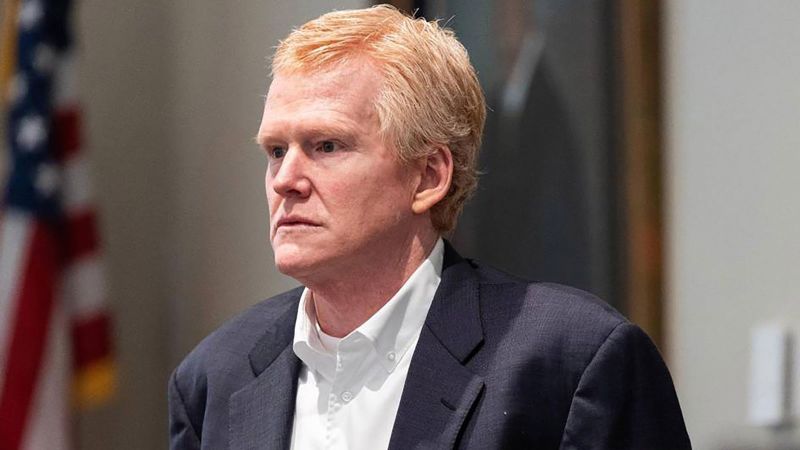
The Legal Saga of Alex Murdaugh: A Controversial Verdict and Allegations of Jury Tampering

The case of Alex Murdaugh, a disgraced lawyer convicted of the murder of his wife and son, has taken a controversial turn as the request for a new trial is denied by Judge Jean Toal. The ruling sheds light on allegations of jury tampering by the county clerk, Rebecca Hill, and the impact of her comments on the trial. Here's a closer look at the unfolding legal saga and the judge's decision.
The Controversial Verdict
The legal battle surrounding Alex Murdaugh, a once-respected lawyer now convicted of a heinous crime, has captivated public attention. The recent ruling by Judge Jean Toal denying a new murder trial has brought to light the contentious nature of the case. Murdaugh, 55, was sentenced to life in prison with no parole for the 2021 murders of his wife and son, a decision that has sparked heated debates and raised questions about the integrity of the trial.
Alex Murdaugh, convicted of killing his wife, Maggie, and younger son, Paul, in June 2021, sits during a hearing on a motion for a retrial, Tuesday, Jan. 16, 2024, at the Richland County Judicial Center in Columbia, S.C.
The allegations against Murdaugh and the subsequent legal proceedings have been marked by intense scrutiny and speculation. The request for a new trial, based on claims of jury tampering by the county clerk, Rebecca Hill, has added a new layer of complexity to an already contentious case. As the legal saga unfolds, the role of the clerk and the impact of her actions have come under the spotlight, casting a shadow of doubt over the integrity of the trial and the verdict.
Alex Murdaugh, second from left, is brought out into the courtroom during a jury-tampering hearing at the Richland County Judicial Center, Monday, Jan. 29, 2024, in Columbia, South Carolina.
Judge Toal's Ruling
In a pivotal ruling that has stirred widespread debate, Judge Jean Toal delivered a decisive verdict on the request for a new trial. Toal's remarks about the county clerk, Rebecca Hill, have sparked controversy and raised pertinent questions about the conduct of court officials. The judge's scathing comments about Hill's alleged motives and actions have underscored the gravity of the jury tampering allegations and their potential impact on the trial.
Alex Murdaugh stands next to the witness booth during a break in his murder trial at the Colleton County Courthouse on Feb. 23, 2023, in Walterboro, South Carolina.
Toal's meticulous examination of the trial proceedings, including personal interviews with jurors and a comprehensive study of the trial transcript, has been a defining factor in her ruling. The judge's emphasis on upholding the integrity of the judicial process and ensuring the fair administration of justice has resonated with legal experts and the public alike. Her unwavering commitment to upholding the rule of law in the face of contentious allegations has set a precedent for legal scrutiny and accountability in high-profile cases.
Implications and Public Response
The ruling on Alex Murdaugh's request for a new trial has reverberated across legal circles and elicited diverse reactions from the public. The implications of the judge's decision, coupled with the allegations of jury tampering, have sparked intense discussions about the integrity of the legal system and the role of court officials in high-profile cases. The public response to the ruling reflects a deep-seated concern for the fair administration of justice and the need for transparency in legal proceedings.
The unfolding legal saga of Alex Murdaugh has reignited debates about the ethical conduct of court officials and the potential influence of external factors on judicial outcomes. The intersection of legal scrutiny, public opinion, and the pursuit of justice has underscored the complex dynamics at play in high-profile trials. As the case continues to unfold, the broader implications of the ruling and the allegations of jury tampering are poised to shape the discourse on legal accountability and the pursuit of truth in the judicial system.













